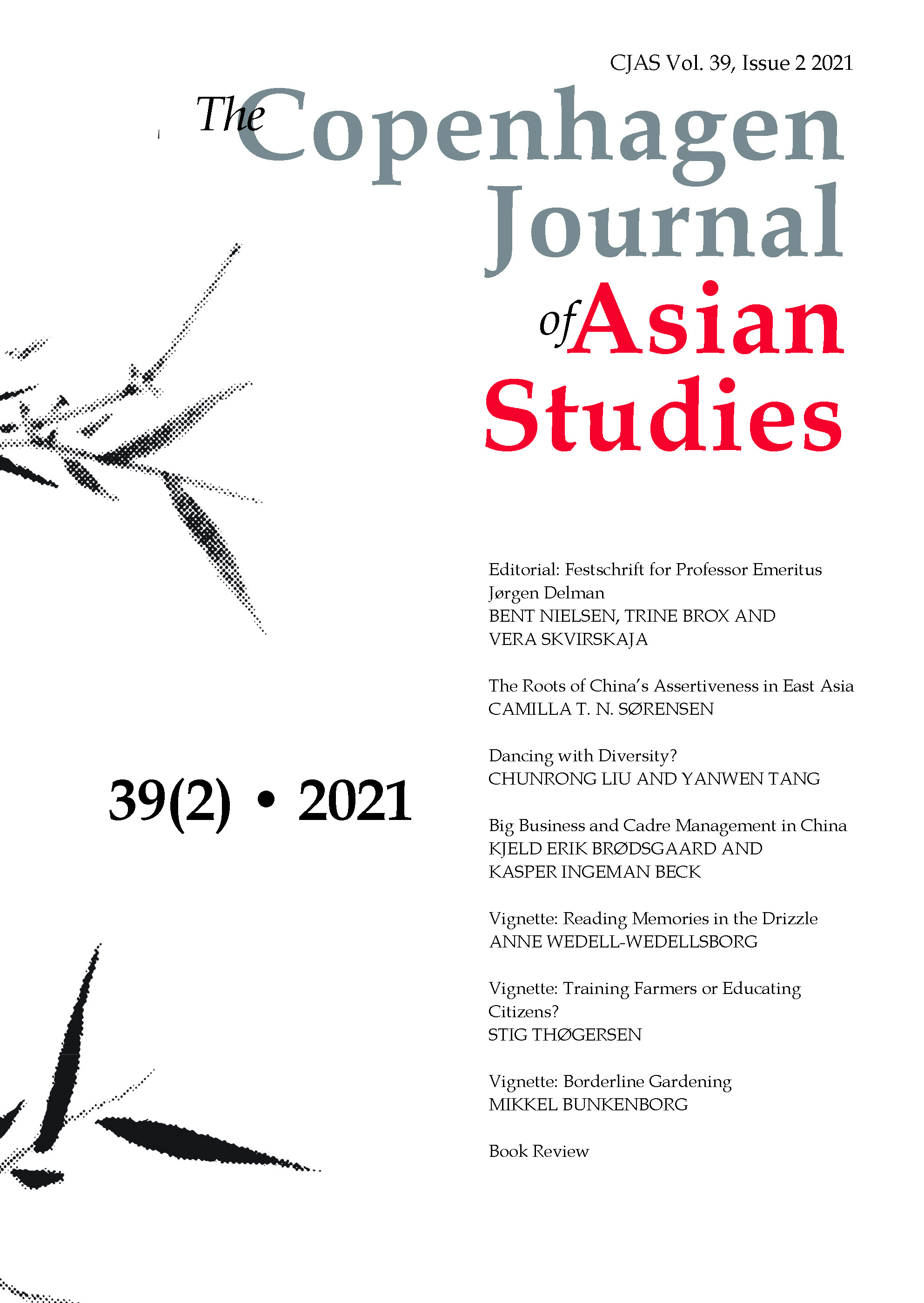Borderline Gardening
Sino-Mongolian Relations and the Construction of Extractive Enclaves with Horticultural Characteristics
DOI:
https://doi.org/10.22439/cjas.v39i2.6387Keywords:
garden, China, Mongolia, natural resources, extractive industriesAbstract
Based on ethnographic fieldwork among Chinese nationals working in Mongolia, this research note explores various forms of gardening that unfolded as side-projects at sites where Chinese enterprises were engaged in the extraction of oil, zinc and fluorspar. At first, the organisation and activities of these Chinese operations appeared to stem from a penchant for walled compounds and gardening. However, on closer inspection, the horticultural enclaves were not really a unilateral imposition of a culturally determined aesthetics, but rather the outcome of a negotiation, informed by prevailing ethnic stereotypes, of the proper form a Chinese presence could assume in Mongolia.
References
Appel, Hannah C. 2012a. ‘Walls and White Elephants: Oil Extraction, Responsibility and Infrastructural Violence in Equatorial Guinea’. Ethnography 13(4): 439-465. https://doi.org/10.1177/1466138111435741.
Appel, Hannah C. 2012b. ‘Offshore Work: Oil, Modularity and the How of Capitalism in Equatorial Guinea’. American Ethnologist 39(4): 692-709. https://doi.org/10.1111/j.1548-1425.2012.01389.x.
Bergesen, Albert 2013. ‘The New Surgical Colonialism: China, Africa and Oil.’ In G. Steimetz (ed.) Sociology and Empire: The Imperial Entanglements of a Discipline. Durham; London: Duke University Press, pp. 300-318. https://doi.org/10.2307/j.ctv123x6t0.13.
Billé, Franck 2015. Sinophobia: Anxiety, Violence and the Making of Mongolian Identity. Honolulu: University of Hawaiʻi Press. https://doi.org/10.1017/s1356186315000036.
Bulag, Uraydyn E. 2009. ‘Mongolia in 2008: From Mongolia to Mine-golia’. Asian Survey 49 (1): 129-134. https://doi.org/10.1525/as.2009.49.1.129.
Bunkenborg, Mikkel, Morten Nielsen, and Morten Axel Pedersen 2022. Collaborative Damage: An Experimental Ethnography of Chinese Globalization. Ithaca, NY: Cornell University Press.
Callon, Michel 1998. ‘Introduction: The Embeddedness of Economic Markets in Economics’. In M. Callon (ed.) The Laws of the Markets. Oxford: Blackwell, pp. 1–57. https://doi.org/10.1111/j.1467-954x.1998.tb03468.x.
Chan, Wing-Tsit 1950. ‘Man and Nature in the Chinese Garden’. In H. Inn and S. Li (eds.) Chinese Houses and Gardens. New York: Hastings House, pp. 30-36. https://doi.org/10.4324/9780203039465-11.
Humphrey, Caroline 1998. Marx Went Away—But Karl Stayed Behind. Ann Arbor: University of Michigan Press. https://doi.org/10.3998/mpub.11004.
Lavelle, Peter 2014. ‘The Aesthetics and Politics of Chinese Horticulture in Late Qing Borderlands’. In T. Liu (ed.) Environmental History in East Asia, London: Routledge, pp. 213-242.
Lee, Ching Kwan 2009. ‘Raw Encounters: Chinese Managers, African Workers and the Politics of Casualization in Africa's Chinese Enclaves’. The China Quarterly 199 (1): 647-666. https://doi.org/10.1017/s0305741009990142.
Lu, Xiaobo, and Elizabeth J. Perry 1997. Danwei: The Changing Chinese Workplace in Historical and Comparative Perspective. Armonk, NY: M. E. Sharpe. https://doi.org/10.1017/s0305741000050062.
Lutz, Catherine 2006. ‘Empire is in the details’. American Ethnologist 33 (4): 593-611.
Ferguson, James 2005. ‘Seeing Like an Oil Company: Space, Security and Global Capital in Neoliberal Africa’. American Anthropologist 107 (3): 377-382. https://doi.org/10.1525/aa.2005.107.3.377.
Ferguson, James 2006. Global Shadows: Africa in the Neoliberal World Order. Durham: Duke University Press. https://doi.org/10.7202/016001ar.
Mohan, Giles 2013. ‘Beyond the Enclave: Towards a Critical Political Economy of China and Africa’. Development and Change 44 (6): 1255-1272. https://doi.org/10.1111/dech.12061.
Ong, Aihwa 2004. ‘The Chinese Axis: Zoning Technologies and Variegated Sovereignty’. Journal of East Asian Studies 4 (1): 69-96. https://doi.org/10.1017/s1598240800004392.
Ong, Aihwa 2006. Neoliberalism as Exception: Mutations in Citizenship and Sovereignty. Durham N.C.: Duke University Press.
Stein, Rolf 1990. The World in Miniature: Container Gardens and Dwellings in Far Eastern Religious Thought. Stanford: Stanford University Press. https://doi.org/10.2307/2057596.
Voltaire 1918 [1759]. Candide. New York: Boni and Liveright. https://www.gutenberg.org/files/19942/19942-h/19942-h.htm. Accessed 24. September 2021.


